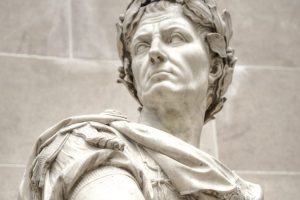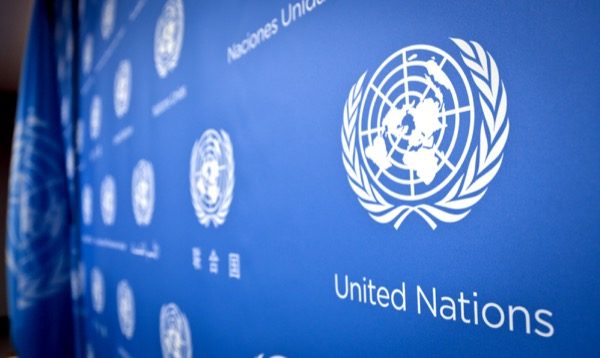
Dr Kamrudeen Mohammed, UK
The following are the words of Allah the Supreme, but were uttered by an individual whom the Holy Qur’an presents as a symbol of great arrogance:
‘I am your Lord, the Most High.’ [1]
The Pharaoh of the era of Hazrat Moses (as) claimed godhood on other occasions:
‘O chiefs, I know of no God for you other than myself;’ [2]
He also claimed temporal control over Egypt:
‘O my people! does not the kingdom of Egypt belong to me …’ [3]
The Holy Qur’an also notes what he deemed as the source of his power: control of the waters of the Nile River. Pharaoh insisted that he had control over the streams flowing through the kingdom and as such, he controlled the destiny of the entire population. The relevant verse of the Qur’an states:
‘And Pharaoh proclaimed among his people, saying, ‘O my people! does not the kingdom of Egypt belong to me and these streams flowing under me? Do you not then see?’ [4]
I would like to draw your attention in particular to the phrase ‘these streams flowing under me’. In other words, Pharaoh seems to be saying that the Nile’s waters flow at his command or that he has power over them.
To further understand the implication of this phrase, we need to be aware of the key driver of the Egyptian economy at the time of Pharaoh. We need to recognise the role of the waters of the Nile and how Pharaoh harnessed their power.
Even today, 95% of Egypt’s population reside along the banks of the Nile. [5] This highlights the pivotal role of the waters of the Nile for agriculture and as the main source of fresh water. [6] Control over the waters of the Nile means control over the destiny of the entire population of the country. Perhaps this is what Pharaoh alluded to when he made the boastful claim:
‘I am your Lord, the Most High’ [7]
Control over the Nile River at the time of Pharaoh meant the establishment of a regulated irrigation system for flood control to support large-scale agriculture. Pharaoh was therefore able to harness the Nile and its seasonal flood, creating a prosperous agricultural system. This is the likely meaning of ‘these streams flowing under me’.
Pharaoh amassed enormous wealth by enslaving the Children of Israel. His economic model was predatory: he exploited the vulnerable and weak, extracted wealth and transferred it to the ruling elite. This was an unjust allocation of resources which fostered inequality and contributed to his arrogance and boastfulness.
How did Pharaoh use this wealth? He used it to misguide people from the worship of God. Allah the Almighty explains in the Holy Qur’an:
‘And Moses said, “Our Lord, You have bestowed upon Pharaoh and his chiefs splendour and riches in the present life, with the result, our Lord, that they are leading men astray from Your path. Our Lord! destroy their riches and harden their hearts so that they believe not until they see the grievous punishment”.’ [8]
The end of Pharaoh is a particularly intriguing and poignant example of poetic justice. He declared control over water and yet water itself became the source of his complete destruction in two ways.
Firstly, Moses (as) was just an infant when he was placed in a tributary of the Nile. Allah says:
‘And We revealed to the mother of Moses saying, “Suckle him; and when you fear for him, then cast him into the river and fear not, nor grieve; for We shall restore him to you, and shall make him one of the Messengers”.’ [9]
This powerless infant, precariously afloat on the river, was saved from harm against the odds of drowning. Not only does this argue strongly against Pharaoh’s alleged authority over the Nile (since he had decreed that all the Israelites’ newborn boys were to be killed and yet it seems that the river did its best to ‘disobey’ him) but it is also important because Hazrat Moses (as) would grow up to be the prophet through whom Allah the Almighty would bring about the destruction of Pharaoh. But this would never have happened if Hazrat Moses (as) had drowned as an infant in the Nile River. Therefore, water played a role in the destruction of Pharaoh from the very beginning.
Secondly, and more obviously, water delivered the final blow to Pharaoh when both he and his powerful army were made to drown in a different body of water: the Red Sea. Allah writes in the Holy Qur’an:
‘So Pharaoh resolved to remove Moses and his people from the earth; but We drowned him and those who were with him, all together.’ [10]
Allah the Almighty further writes in the Holy Qur’an that He Himself is the One who subjects the rivers for us and that we humans are not the ones with the power:
‘Allah is He Who created the heavens and the earth and caused water to come down from the clouds, and brought forth therewith fruits for your sustenance. He has constrained to your service the winds that vessels may sail through the sea by His command, and the rivers also has He constrained to your service.’ [11]
The fact that Pharaoh drowned, despite his pompous claim of having control over rivers and water, is a powerful lesson for all times and is forever preserved in the Holy Qur’an. Those who are arrogant because of their perceived dominance over certain aspects of nature should remember the poetic justice of Allah.
Control of natural resources, nuclear power or food supply should never lead to conceit and exploitation. The source of their arrogance may well be the cause of their downfall and destruction.
About the Author: Dr Kamrudeen Mohammed is a Consultant Endocrinologist. He is currently serving as President of Scunthorpe Jama’at UK.
ENDNOTES
[1] Holy Qur’an Ch.79:V.25
[2] Holy Qur’an Ch.23:V.39
[3] Holy Qur’an Ch.43:V.52
[4] Holy Qur’an Ch.43:V.52
[5] https://www.capmas.gov.eg/HomePage.aspx accessed on 17th July 2021
[6] Encyclopaedia of the History of Science, Technology, and Medicine in Non-Western Cultures
[7] Holy Qur’an Ch.79:V.25
[8] Holy Qur’an Ch.10:V.89
[9] Holy Qur’an Ch.28:V.8
[10] Holy Qur’an Ch.17:V.104
[11] Holy Qur’an Ch.14:V.33




Add Comment